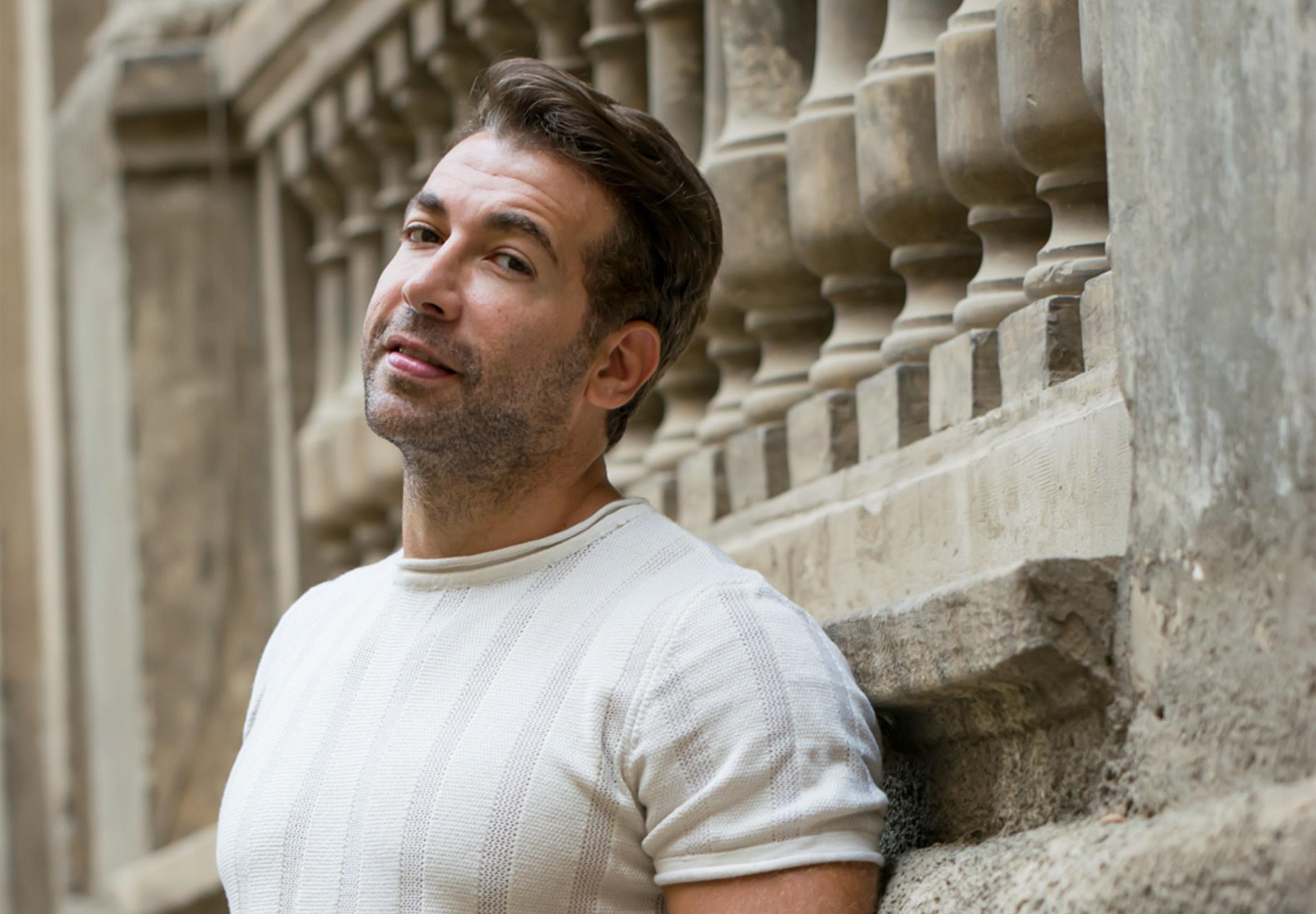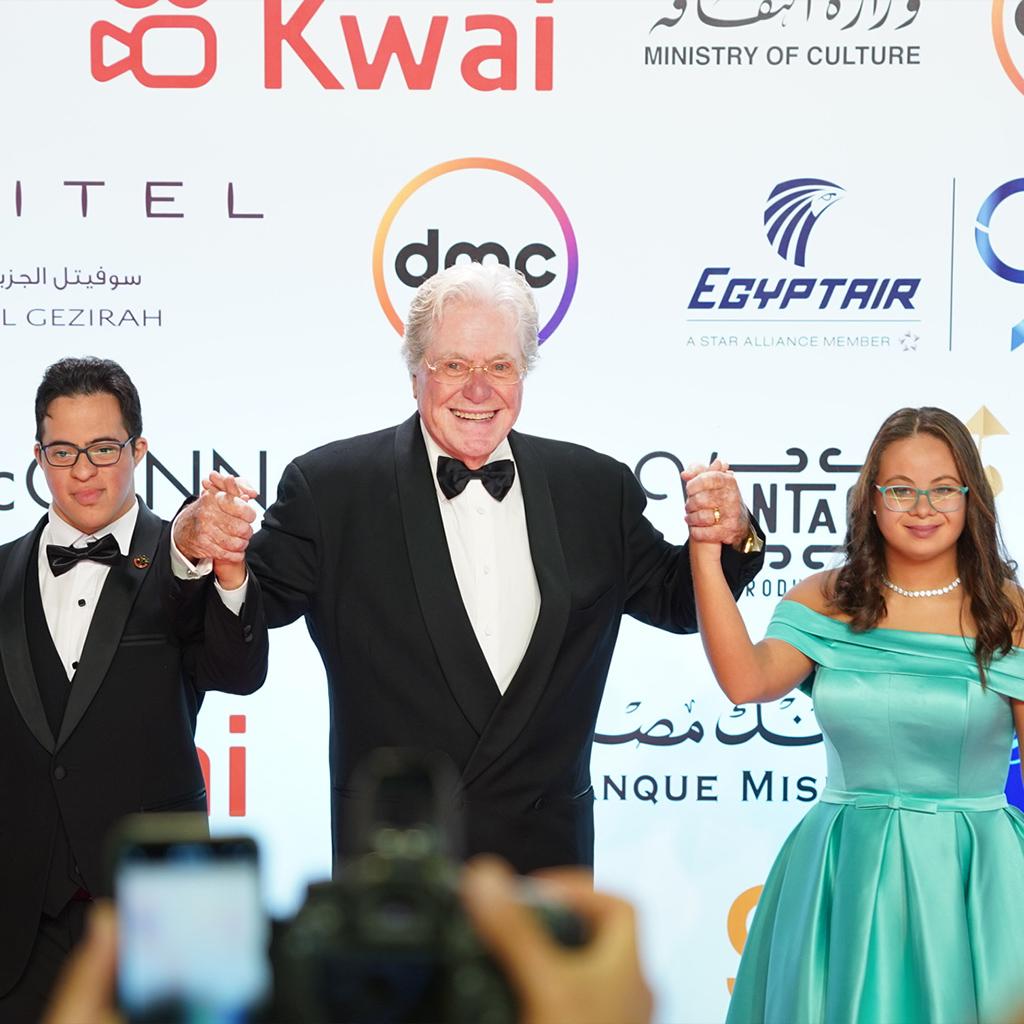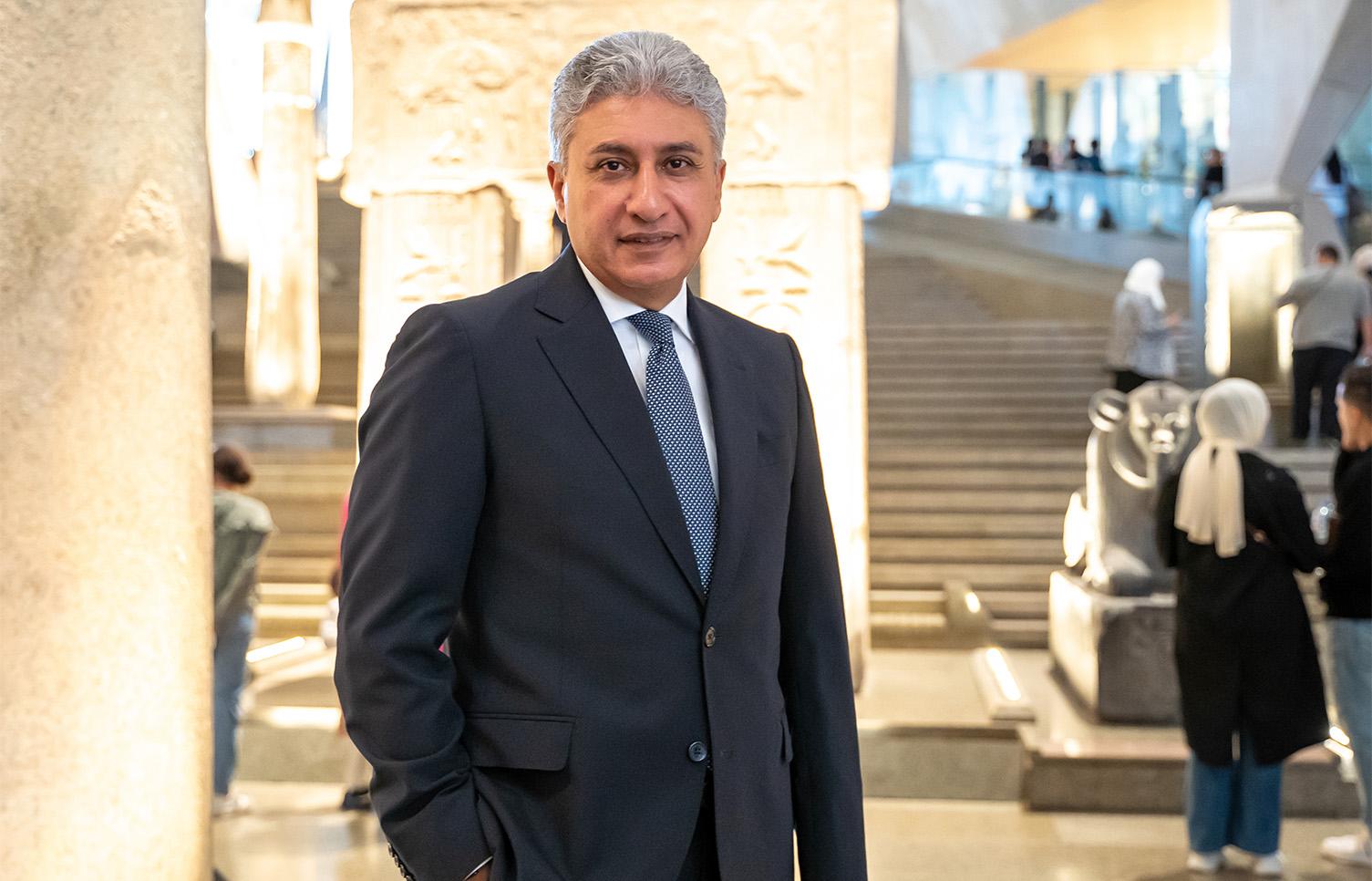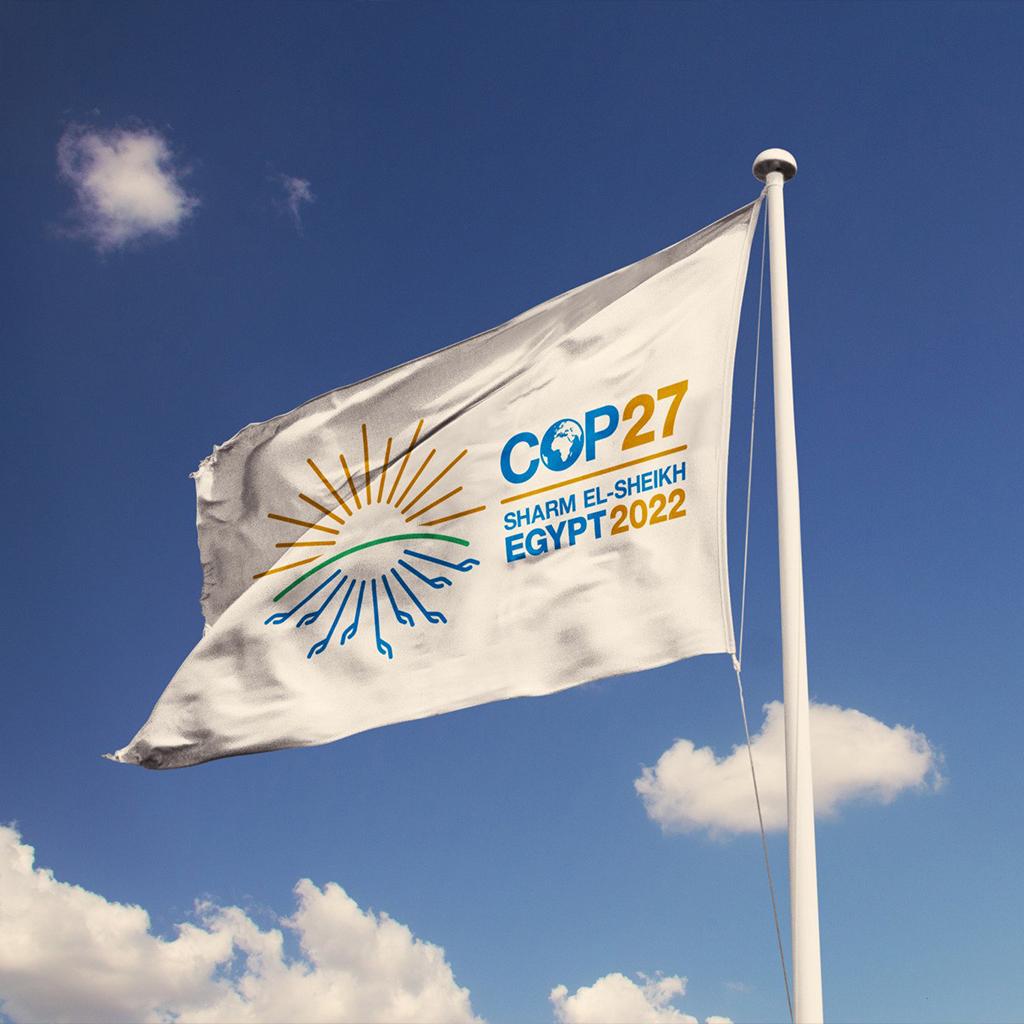
Date: 2017-09-01
Hisham El Demery, The Hard Mission: Reviving Egypt’s Tourism Industry

There is no doubt that the revitalisation of tourism in Egypt has become one of the most difficult and complex tasks weighing on our nation, especially after the political unrest that Egypt witnessed over the past few years, which negatively affected the flow of tourists to Egypt. We here at HE magazine wanted to give our readers an opportunity to understand the issues that tourism in Egypt has been facing and how various organizations are acting to revitalise tourism in our nation. We sat down to talk with Hisham El Demery, the head of the Tourism Promotion Authority, who is a lead figure in the tourism industry. El Demery has years of experience in the hospitality industry, having acted as general manger to a number of major hotels and resorts in Cairo, Sharm El-Sheikh, and elsewhere before taking his current position.
In this interview, El Demery explains the current state of tourism and the actions being taken to improve the state of tourism in Egypt. He answers many important questions needed for a fuller understanding of the efforts to revitalise tourism in Egypt.
Interview by: Amr Selim
How do you see the current state of the tourism sector in Egypt?
Since the uprising of 2011, the Egyptian tourism sector has had to navigate choppy waters and has faced many difficulties that led to a sharp decrease in the number of tourists visiting the country.
It has now partly recovered, but I believe that we still have a long way to go to make the sector as prosperous as it once was.
With that being said, I think it is important to highlight that the decrease in tourism is a result not only of post-revolution instabilities and domestic security threats but also of other tourism-related issues that have been present for years.
Therefore, I strongly believe that we should not be putting all of the blame on Egyptian authorities alone but on all tourism-related parties, both private and public, including high officials, investors, and businessmen. Everyone is equally accountable for the present status of the tourism sector.
In addition to political instability, what other issues have caused a decline in the number of tourists visiting Egypt?
As mentioned earlier, Egyptian tourism has gone through some tough times in the past few years resulting from several non-political factors.
One of the factors is the persistence of hotel chains to expand the number of rooms they offer despite limited demand, causing an imbalance between the supply and demand .
Another factor that has negatively affected the tourism sector in Egypt and harmed the country’s image is “mass tourism”, which saw tourism-related players focus on attracting more tourists for cheaper costs rather than concentrating their attention on improving the quality of products and services.
Furthermore, I believe that the lack of market diversification is another issue that is affecting our tourism industry.
In fact, we have always focused our attention on the same markets—Russia, Germany, the United Kingdom, and Italy—from which we get 70-75% of our market share.
In addition to the above-mentioned factors, I believe that lack of training of the workforce has caused the quality of the services provided by tourism sector employees to suffer.
Other factors that have negatively impacted tourism are the unreformed aviation organisation, the heavy dependence on charter flights, and a lack of importance given to the tourists (business-to-consumer transactions) at the benefit of Tour Operators (business-to-business transactions).
In conclusion, I would like to say that these are only the most flagrant issues that harmed the sector, but there are surely other matters that have had an impact on our industry and must be addressed efficiently and as soon as possible.
What are essential requirements to open new markets?
Penetrating new markets is not as easy as it seems. In fact, attracting new potential tourists is a perplexing task that requires lots of research and market studies.
Let me briefly tell you the path we follow before taking the decision to open a new market.
Commonly, we would start by testing the travel appetite of a given market and tourists’ financial abilities before focusing on creating a demand for our Egyptian products.
In parallel, we would also ensure that the market we are looking to penetrate enjoys a certain political and economic stability.
Also, we would make sure to assess the available aviation programme (scheduled or charter flights), as this remains the main means of transportation for all markets.
Once we guarantee that all these factors are available, we would start the next phase, with marketing activities that include advertising, public relations, and tourism events as well as with direct discussions with tour operators, online travel agents (OTAs), and retail shops (B2B and B2C).
All the above-mentioned steps generally result in a call to action, or in other terms: tourists making bookings to come to Egypt.

How can you explain the tourism sectors of some countries, such as Germany and France, being less harmed than in Egypt despite terror attacks on their soils?
Tourism all over the world has always been vulnerable to external occurrences such as natural disasters and man-made crises, so the impact of a terror attack, a tsunami, or even a virus outbreak on a country is likely to depend on the country’s stability, regardless of whether the attack was aimed at tourists or the government’s response.
On average, it takes approximately 13 months for a country to recover from a terrorist attack, according to research from the World Travel and Tourism Council (WTTC).
Now, back to your question, I do not think that comparing the impact of terror attacks between countries is what is important here.
Yes, Egypt has been affected by many incidents, but dwelling on these is not useful. In fact, what is required is to work hard to maintain a safe and secure brand image, which is exactly what I have been working on since I have arrived in September
First, we have increased the number of organised FAM tours, or educational trips, for OTAs and retail shops so that people can experience the beauty of Egypt and share it with their customers.
In addition, we have worked on inviting both media and famous personalities to come to Egypt to portray a positive image of the country to the rest of the world.
We have also set up events, activities, and festivals to take place in the country throughout the year to reposition Egypt on the map of desirable tourist destinations.
With that being said, I would like to reiterate that terror is a global threat that affects all countries alike. Some countries are more fragile than others, but at the end of the day no one is spared.
What are the main directions of your marketing campaign?
In light of the difficulties we have been facing since the uprising of 2011, we have been working on improving the sector’s fundamentals.
So in September 2015, we decided to sign a $66m contract with J. Walter Thompson (JWT), the same international advertising firm that was involved in our marketing efforts prior to 2011.
JWT, which has over 120 branches worldwide, is running marketing activities, such as print and online advertising, as well as public relations in 26 markets.
Through these activities, we wanted to not only promote our diverse range of products and activities but also and above all improve our brand image and counter the negative picture that is being spread in some places around the world.
I would like to believe that we are now on the right track, especially following the assessment made by the U.N. World Tourism Organization (UNWTO) in September, which was mainly positive despite some minor challenges that we are currently addressing.
Has domestic tourism compensated for the decrease in inbound tourism?
We have been well aware of the importance of bolstering domestic tourism in light of the lagging rates of incoming international tourism, and we have worked to encourage Egyptians to travel within the country.
I can think of no better example than “Egypt in our Hearts”: a governmental initiative to boost domestic tourism. The initiative has helped maintain hotel occupancy, uphold employment rates and wages of tourism-related workers, and, above all, connect Egyptians with their heritage and raise their awareness of domestic tourism.
However, I definitely cannot say that domestic tourism is compensating for the decrease of inbound tourism. It may be keeping the country’s economy alive, but it does not in any case bring foreign currency to Egypt nor does it boost the country’s GDP.
So yes, you can say that domestic tourism has played a key role over the past few years, but it is surely not enough to have a flourishing tourism sector.
Is it only the ETA’s duty to improve the image of Egypt abroad?
Definitely not! We may play the largest role in improving the image of Egypt abroad, but we cannot do it without other public and private parties.
Tourism in Egypt is both directly and indirectly linked to citizens, government ministries including civil aviation, antiquities, and foreign affairs, and businessmen; therefore, it is only normal to say that everyone in Egypt is involved in the brand image portrayed to the world.
With that being said, I can only affirm that we as Egyptians all have a duty towards the country.
We all have to spread a positive image of Egypt and follow a common strategy to ensure that we are all aligned in portraying the same image of the country.
Is the Egyptian media able to counter the negative campaigns led by the international media?
Well, I do not think we can separate local and international media.
We live in a digital era that has witnessed the emergence of social media, making the world a small “village” in which news travels from one place to the other in no time and with no boundaries.
However, even if news travels everywhere fast, foreign journalists—if not based in Egypt—must depend on reliable sources, and that is exactly where our local media, or in other terms our government-owned newspapers, news channels, and Facebook pages, is important.
As the source of the news, Egyptian local media can counter the negative image spread by some foreign media outlets by portraying the most accurate and positive image of Egypt possible.
By being proactive and constantly pushing a flow of positive news—such as events, festivals, and local achievements—rather than being reactive, Egyptian local media can positively impact the way media portrays the country.
What do you think of the current structure of ETA’s international offices?
I do not really approve of the current system with which our international offices operate, as I believe we do not have a well-defined structure.
We currently have 10 bureaus covering more than 60 countries, with each office having no more than two or three employees, which does not allow any kind of creativity, efficiency, or outstanding results.
Recently, I decided to look into the matter and rework the structure of our international offices.
The new structure, which will hopefully guarantee utmost efficiency, productivity, and results, will see most countries controlled directly from ETA’s offices in Egypt as it becomes the main hub of the new configuration.
This change is to rely on the latest technical tools and ameliorate the skills of our young, potential employees.
Could you give us a glimpse of your expectations for 2017?
Egypt’s tourism sector has proved relatively resilient in the face of difficulties over the past few years, and given time and the right conditions, it is likely to bounce back again and regain its normal market share.
Therefore, I can only voice my optimism that the flow of tourists will in the near future become even stronger than it was in that past and that Egypt will once again reach the unprecedented numbers of 2010.
Now, we must not forget that we are currently working with travel bans from two of our main markets—the UK and Russia—despite the emergence of new potential markets such as Poland, Ukraine, and the Czech Republic.
With that being said, I can assure you that we are doing our best to ensure that tourists once again find their way back to their home away from home, Egypt.
How does the ETPB use the visits of famous stars and celebrities?
The ETPB utilises celebrities to promote tourism in Egypt in the same way that various product manufacturers advertise and promote their products using celebrities. We realised that the power of letting others talk on our behalf is very influential.
ETPB goes through an extensive, methodical process to select the appropriate celebrity to ensure the right fit for any given category: reflected in the number of fans and followers that individual has on social media. We look for celebrities in different fields, including politics, sports, economics, media, etc. Basically, the celebrity selected must be highly visible and enjoy a diverse fan base that covers different segments of society.
The purpose of a celebrity’s visit is to promote our diversity of products to the entire world, therefore showcasing a positive and attractive image of Egypt as a tourist destination.
In addition to the above strategy, ETPB utilises media such as pictures, videos, and various interviews to increase and motivate celebrities’ fans and followers to visit Egypt.

Is there any plan to continue in this direction?
Indeed, our plan is to continue to actively use celebrity visits to promote tourism. Since its recent evolution, social media has become one of the most successful tools for promotion and advertisement.
What qualifications are needed to work at the international offices?
Selecting employees to work at the international offices is a long and meticulous exercise. It begins with basic requirements such as local market language proficiency and extensive knowledge of the culture and history of the country. Even more important, however, is knowledge of the market profile like segmentation, seasonality, compotators, etc. or in other words: which market chooses the destination. In addition, the incumbent must have extensive knowledge of all of Egypt’s tourism products and attractions as well as an ability to create an extensive communication network with the media, tour operators, airlines, and governmental officials in the tourism market at large.
Moreover, candidates should be leaders, possessing the ability to build strategies, work independently, and display crisis management skills.
Was your move to the ETPB easy to manage?
In reality, working as the head of an organisation responsible for promoting Egypt worldwide is a huge responsibility. You are responsible for promoting a country with a deep history and multiple and varied sectors of tourism; however, management processes and the ability to divert the focus of all available resources is no different, especially with modern management technologies that executive managers acquire throughout their career.
While ETPB has to move forward into a new era by emphasising technology use in order to keep up with international business trends, we should also work to eliminate and overcome bureaucratic problems in order to have faster and more streamlined decision making processes.
What are the differences between working for the public sector and the private sector?
There are a number of differences between working with in the governmental sector versus the private sector.
Working for the public sector means it is necessary to comply with the country's rules and regulations, bilateral agreements between the country and other countries, the politics of the countries, and the various governmental procedures and rules. Working for the private sectors provides tremendous flexibility, requiring compliance only with the standard ethics and corporate rules and regulations.
While ETPB has to unify its own policies, they should be more flexible without violating the country's regulations in order to secure the best results.
What are the biggest challenges facing tourism in Egypt?
The biggest challenge facing the tourism industry in Egypt is the effort to portray an accurate image of the country in the face of recent incidents and the unrest following the 25 January Revolution that created an false image of the country. The uprising was followed by the reshaping of all the country's institution into a modern democratic system, establishing stability and rebuilding the country’s economic infrastructure. This, along with new national projects, needs to be focused on in order to encourage international investment.
I believe we are now moving forward after a series of aggressive PR and marketing activities conducted over the past few months, especially on digital platforms, which yielded very good results.
Now, most European countries have lifted travel bans, and I believe that following the political, economic, and social stability the country is currently enjoying, tourism will undoubtedly stabilise very soon.
Biography –
Hisham El Demery has served as the Chairman of the Egyptian Tourism Board since September 2016.
El Demery earned a Bachelor Degree in Commerce and Business Administration (B.C.) from Helwan University in Cairo. After graduation, he launched his career in the hotel business, where he held several positions including Director of Sales and Marketing and General Manager before serving as Group General Manager for a number of hotels in 2005.
El Demery has over 25 years of experience in the hospitality industry
Throughout his career, El Demery has been awarded numerous prizes including the Elite Recognition Award and the Special Achievement and Extraordinary Leadership Award from Marriott International and MövenpickHotels & Resorts.





